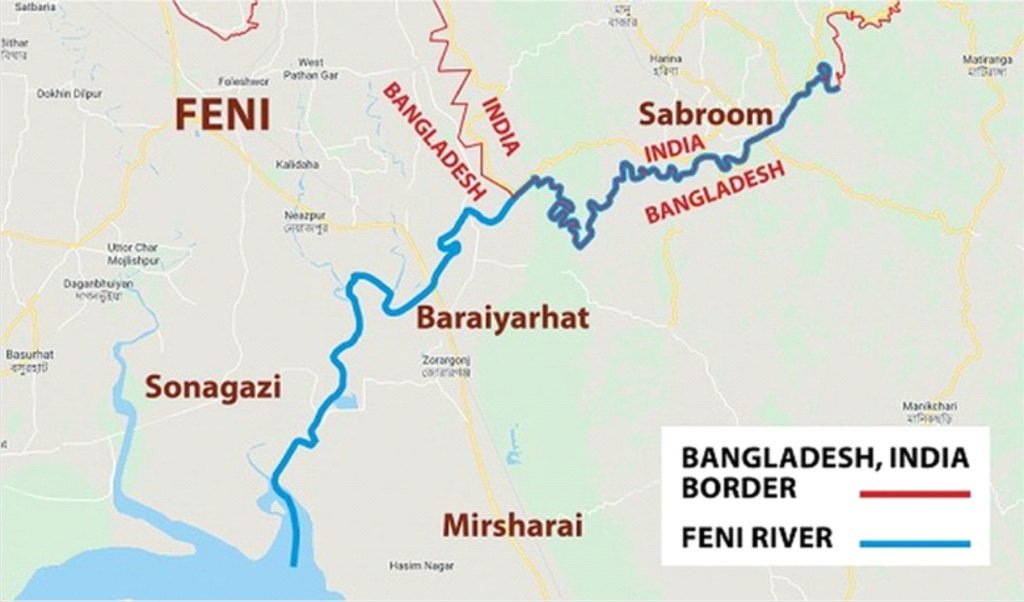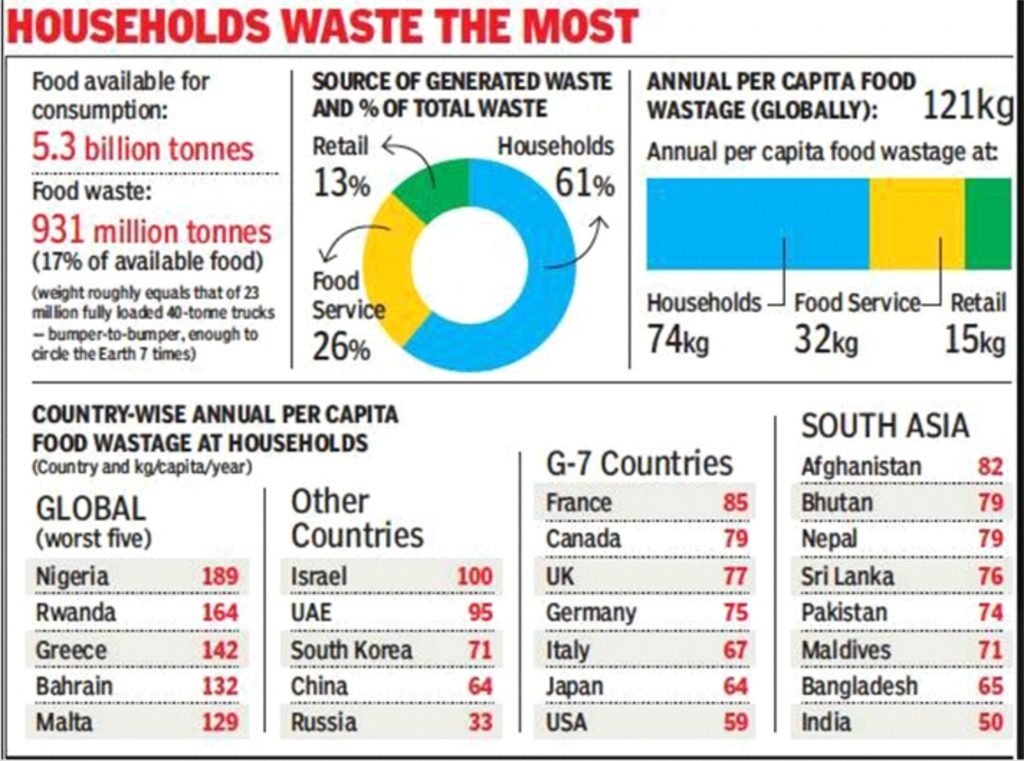Current Affairs (9th March 2021)
‘MaitriSetu’
Context:
- Prime Minister will inaugurate MaitriSetu between India and Bangladesh. He will also inaugurate and lay the foundation stone of multiple infrastructure projects in Tripura during the event.
About:
- The bridge MaitriSetu has been built over Feniriver which flows between Indian boundary in Tripura State and Bangladesh.
- The name MaitriSetu symbolizes growing bilateral relations and friendly ties between India and Bangladesh.
- The construction was taken up by the National Highways and Infrastructure Development Corporation Limited at a project cost of 133 Crore rupees.
- The 9 Kilometres long bridge joins Sabroom in India with Ramgarh in Bangladesh.
- It is poised to herald a new chapter for trade and people to people movement between India and Bangladesh.
- With this inauguration, Tripura is set to become the Gateway of North East with access to Chittagong Port of Bangladesh, which is just 80 Kilometres from Sabroom.

Other initiatives:
- The Prime Minister will also lay foundation stone for setting up an Integrated Check Post at Sabroom.
- It will help ease the movement of goods and passengers between the two countries,provide new market opportunities for products of North East states and assist seamless movement of passengers to and from India and Bangladesh.
- The project is being taken up by the Land Ports Authority of India at an estimated cost of about 232 Crore rupees.
- The Prime Minister will also lay the foundation stone of NH 208 connecting the Unakoti district headquarters at Kailashahar with the Khowai district headquarters.
- It will provide an alternative route to the NH 44. The 80 Kilometres NH 208 project has been taken up by the National Highways and Infrastructure Development Corporation Limited with a project cost of one thousand 78 Crore rupees.
- The Prime Minister will also inaugurate State Highways and other district roads, developed by the State government with a financial outlay of 63.75 Crore rupees. They will provide all weather connectivity to the people of Tripura.
- The Prime Minister will inaugurate 40 thousand 9 hundred 78 houses constructed under Pradhan Mantri Awas Yojana (Urban), completed with the financial outlay of 813 Crore rupees.
- He will also inaugurate the Integrated Command and Control Centre built under Agartala Smart City Mission.
- The Prime Minister will lay the foundation stone for the development of Multi Level Car Parking and Commercial Complex at Old Motor Stand. It will be developed at a cost of about 200 crore rupees.
- He will also lay foundation stone for widening of the existing road from Lichubagan to the airport from two lanes to four lanes.
- The work is being implemented by Agartala Smart City Mission at a project cost of about 96 crore rupees.
Reservation
Context:
- The Supreme Court decided to examine whether its nearly three-decade-old judgment, which fixed reservation for the marginalised and the poor in government jobs and educational institutionsat 50%, needs a re-look.
- In 1992, a nine-judge Bench of the court had drawn the “Lakshmanrekha” for reservation in jobs and education at 50%, except in “extraordinary circumstances”.
- However, over the years, several States such as Maharashtra and Tamil Nadu have crossed the rubicon and passed laws which allows reservation shooting over 60%.
Maratha quota law
- A five-judge Bench was set up to hear the challenge to the Maratha quota law, decided not to confine the question of reservation spilling over 50% limit to just Maharashtra.
- The Bench expanded the ambit of the case by making other States party and inviting them to make their stand clear on the question of whether reservation should continue to remain within the 50% boundary or not.
Questions in front of bench
- The Indira Sawhney verdict of 1992, fixing 50% limit on quota, needs to be re-looked by a larger Bench of more than nine judges.
- Whether the Maharashtra State Reservation for Socially and Educationally Backward Classes (SEBC) Act of 2018, which provides 12% to 13% quota benefits for the Maratha community, and thus, taking the reservation percentage in the State across the 50% mark was enacted under “extraordinary circumstances”.
- A significant question the Bench wants to judge is whether the Constitution (One Hundred Second Amendment) Act of 2018, which introduces the National Commission for Backward Classes (NCBC), interferes with the authority of State Legislatures to provide benefit to the social and educationally backward communities in their own jurisdiction.
- The Constitution Amendment Act had introduced Articles 338B and 342A in the Constitution. Article 338B deals with the newly established the NCBC.
- Article 342A empowers the President to specify the socially and educationally backward communities in a State. It says that it is for the Parliament to include a community in the Central List for socially and backward classes for grant of reservation benefits.
- The court wants to delve into the issue whether Article 342A strips State Legislatures of their discretionary power to include their backward communities in the State List.

HOUSEHOLD WASTAGE:
Context:
- According to UNEP report, 50 kg of food wasted per person per year in Indian homes.
Report
- The weight of the global food waste roughly equals India’s total production of foodgrain, oilseeds, sugarcane and horticultural produce in 2019-20.
- The report shows that most of this waste globally comes from households, followed by food services and retail outlets.
- On a global per capita level, 121 kg of food is wasted each year, with 74 kg of this happening in households.
- In South Asia, estimates at household level show a waste of 50 kg of food per person per year in India compared to 82 kg in Afghanistan, 79 kg in Nepal, 76 kg in Sri Lanka, 74 kg in Pakistan and 65 kg in Bangladesh.
Analysis:
- Per capita food wastage is much higher in west Asian and sub-Saharan African countries compared to South Asian and most of the European and North American countries, challenging earlier narratives of higher consumer food waste in developed countries, and food production, storage and transportation losses in developing countries.
- Food and Agriculture Organisation of the UN (FAO) estimates that 690 million people were hungry in 2019, the food waste index report said the number was expected to rise sharply during and post-Covid-19.
- The report noted that the household per capita food waste generation is found to be broadly similar across country income groups.
- Many people die of hunger every year across the globe and yet 931 million tonnes of food was wasted the world over in 2019. In India too, where millions survive at subsistence level, tonnes of food is wasted.
- We need awareness campaigns on the subject, both by the government and by civil society groups.

OCI cardholders
CONTEXT:
- The government has notified a consolidated list of rights that Overseas Citizens of India (OCI) enjoy, spelling out that holders of OCI cards would need prior permission for a set of activities that include research, journalism, mountaineering, missionary or Tablighi work, and visits to restricted areas.
- These rights and restrictions are not new – they have been notified previously in 2005, 2007, and 2009. They were also mentioned in an OCI brochure published by the Ministry of Home Affairs in November 2019. The restriction on Tablighi activities has existed since the mid-90s.
ABOUT:
- OCI cardholders will be entitled to get multiple entry lifelong visas for visiting India for any purpose.
- OCI cards would need prior permission for a set of activities that include research, journalism, mountaineering, missionary or Tablighi work, and visits to restricted areas.
- OCI cardholders will enjoy parity with NRIs in adoption of children, appearing in competitive exams, purchase or sale of immovable property barring agricultural land and farmhouses, and pursuing professions such as doctors, lawyers, architects, and chartered accountants.
- They have parity with Indian nationals in the matter of domestic air fares, entry fees to monuments and public places.
- OCIs can appear for all-India entrance tests such as National Eligibility cum Entrance Test (NEET), Joint Entrance Examination (Mains), Joint Entrance Examination (Advanced) or such other tests to make them eligible for admission only against any NRI seat or any supernumerary seat.
- The OCI cardholder shall not be eligible for admission against any seat reserved exclusively for Indian citizens.
- In respect of all other economic, financial and educational fields not specified in the latest notification or the rights and privileges not covered by the notifications made by the Reserve Bank of India under the Foreign Exchange Management Act, 1999, the OCI cardholder shall have the same rights and privileges as a foreigner.
- They are exempted from registration with the Foreigners’ Regional Registration Officer (FRRO) for any length of stay in India.
- There will be no restriction in visiting religious places and attending normal religious activities like attending religious discourses.
- However, preaching religious ideologies, making speeches in religious places, distribution of audio or visual display/pamphlets pertaining to religious ideologies, spreading conversion etc. will not be allowed.

